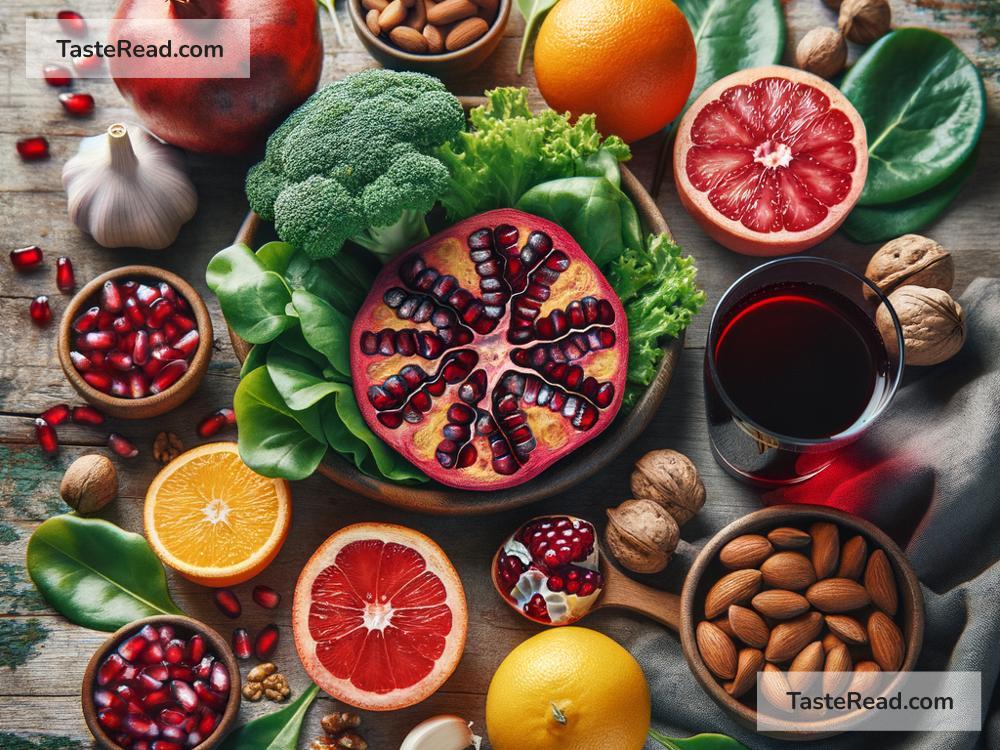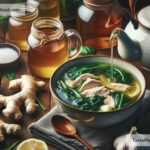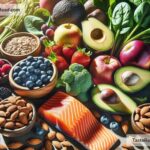Foods That Promote Venous Return: Nutrition for Better Circulation
Good venous circulation is critical for maintaining healthy blood flow from your legs back to your heart. When venous return is impaired, it can lead to symptoms like swelling, varicose veins, or even serious conditions like blood clots. While lifestyle changes such as regular exercise and avoiding prolonged sitting or standing are essential, nutrition also plays a big role in boosting circulation and supporting vein health.
In this blog, we’ll explore some foods that promote venous return and how they can help improve your circulation. Don’t worry – we’ll keep it simple, so you can easily incorporate these foods into your daily meals.
What Is Venous Return?
Venous return is the process by which blood is transported back to the heart after delivering oxygen and nutrients to the body’s tissues. Gravity makes this journey challenging, especially for blood traveling from the lower legs and feet. Your veins depend on tiny one-way valves and surrounding muscles to push the blood upward toward the heart. When these valves don’t work properly or when blood circulation slows, it can lead to venous insufficiency.
The good news is, certain foods contain nutrients that help improve vein health, reduce inflammation, and keep blood flowing smoothly.
Foods That Improve Venous Return
Here are some of the best foods to include in your diet to support circulation and venous health:
1. Leafy Greens
Leafy greens like spinach, kale, and Swiss chard are rich in nitrates, which your body converts into nitric oxide. Nitric oxide helps relax and widen blood vessels, making it easier for blood to flow. Greens are also packed with antioxidants and vitamins that support healthy veins and prevent inflammation.
Tip: Add a handful of spinach to your morning smoothie or enjoy a spinach salad with dinner.
2. Citrus Fruits
Oranges, lemons, grapefruits, and other citrus fruits are loaded with vitamin C, a key nutrient for vein health. Vitamin C strengthens the walls of your veins and improves collagen production, helping to maintain strong veins and reduce vein weakness. Citrus fruits are also high in antioxidants, which fight free radicals that can damage blood vessels.
Tip: Squeeze lemon juice into water or eat an orange as a midday snack.
3. Berries
Berries like strawberries, blueberries, raspberries, and blackberries are packed with flavonoids and antioxidants that reduce inflammation and improve circulation. Flavonoids strengthen vein walls and promote blood flow, making berries an excellent food for venous health.
Tip: Snack on fresh berries or mix them into oatmeal, yogurt, or smoothies.
4. Garlic and Onion
Both garlic and onion have been shown to improve circulation and reduce inflammation. These foods contain compounds like allicin and quercetin, which help to dilate blood vessels and support proper blood flow. They also have antioxidant properties that protect your veins from damage.
Tip: Cook with garlic and onions to flavor your meals, or roast them for a sweet and savory addition to your dishes.
5. Beets
Beets are another nitrate-rich food that helps boost blood flow by increasing nitric oxide levels. They’re especially good for improving circulation in your legs. Beets also contain antioxidants that reduce oxidative stress and promote vein health.
Tip: Roast beets with olive oil or blend them into a vibrant smoothie with apples and ginger.
6. Walnuts and Almonds
Nuts like walnuts and almonds are rich in healthy fats, like omega-3 fatty acids, which improve blood vessel function and reduce inflammation. They also contain vitamin E, which acts as an antioxidant to protect your veins and blood vessels.
Tip: Include a handful of nuts as a daily snack or sprinkle them over salads for crunch.
7. Tomatoes
Tomatoes contain lycopene, a powerful antioxidant that supports vein health and improves blood flow. Lycopene is especially good for protecting veins and arteries from oxidative damage, which can impair circulation.
Tip: Use fresh tomatoes in salads, soups, or pasta sauces. Cooking tomatoes increases their lycopene content!
8. Dark Chocolate
Yes, you read that right – a little dark chocolate (70% or higher cocoa) can be good for your veins! Dark chocolate contains flavonoids that improve blood vessel function and circulation. Just be mindful of portion sizes to avoid extra sugar and calories.
Tip: Keep a small piece of dark chocolate in your pantry for a guilt-free treat.
9. Whole Grains
Whole grains like oats, quinoa, and brown rice are high in fiber, which improves circulation by reducing cholesterol levels and keeping your veins clear. Fiber also helps prevent blood clots and varicose veins by improving overall blood flow.
Tip: Swap white bread for whole-grain options and include more oatmeal or quinoa in your meals.
10. Avocado
Avocados are packed with heart-healthy fats and potassium, which support circulation and reduce bloating and swelling. Potassium helps balance fluids in your body and can reduce pressure in your veins.
Tip: Add avocado slices to sandwiches or mash it into guacamole as a dip with veggies.
Drink Plenty of Water
In addition to eating the right foods, staying hydrated is just as crucial for good circulation. Water helps maintain blood viscosity, allowing your blood to flow smoothly through your veins. Aim to drink at least 8 glasses of water per day.
Conclusion
Your diet plays a significant role in supporting venous return and promoting healthy circulation. By including foods rich in antioxidants, fiber, healthy fats, and nitrate compounds, you can nourish your veins and improve blood flow from your legs back to your heart. Whether it’s munching on some leafy greens, enjoying a handful of walnuts, or indulging in a small piece of dark chocolate, these simple dietary choices can have a meaningful impact on your vein health.
Keep in mind that no single food will do the job on its own. Pair these nutritious choices with regular exercise, proper hydration, and healthy habits to give your body the support it needs for better venous return and overall well-being.


